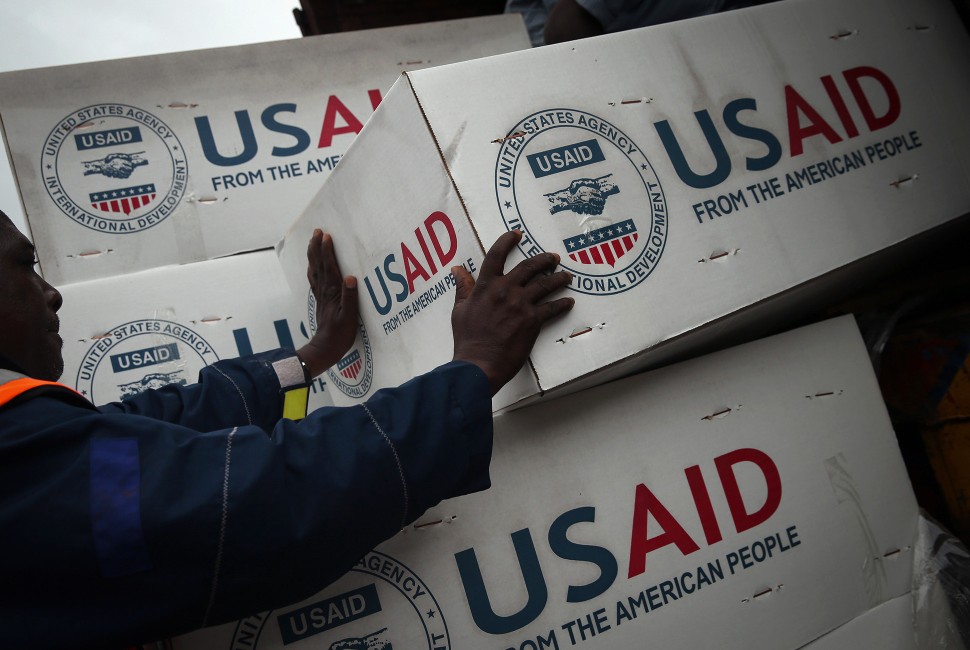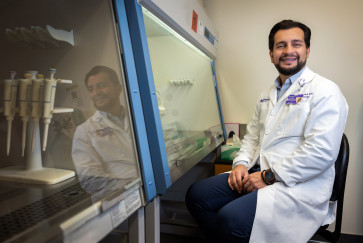Dean Karlan, the most recent chief economist of USAID and a professor of economics at Northwestern, sat before a packed room to share insights on the current state of U.S. foreign aid initiatives in conversation with global finance expert Valerie Friedman, a Northwestern alum and member of the Board of Trustees.
“USAID was the largest bilateral organization in the world, but was much smaller than most people think,” said Karlan, during the public event hosted by the Buffett Institute for Global Affairs.
Karlan noted that public opinion surveys show a majority of Americans think the country spends roughly 25% of its budget on foreign aid — and should spend 10%, far less. “The right answer,” he said, “is that only about 0.6 or 0.7% of the national budget goes to USAID.”
An organization that was started in 1961 under President John F. Kennedy, USAID existed under the premise that we can do good around the world as a moral leader, in a way that not only helps others but also brings some benefits back to the United States through “soft power,” Karlan said. The soft power of U.S. foreign aid wins friends, wins allies and strengthens relationships, making it less necessary to use military or even formal diplomatic efforts.
Northwestern Now has curated highlights from the conversation in the form of a Q&A with Karlan.
How did you end up at USAID, and what did you do that was different from what had gone on the previous 60 years?
In 2022, I was asked to help USAID become more cost effective by choosing better programs, using evidence to guide decisions on what to fund. There had not been an Office of the Chief Economist at USAID before, so the first thing we had to do was to build the office, which we built up to 32 staff. This involved navigating tricky bureaucratic processes and even raising some funds from private philanthropies which allowed us to move faster and more flexibly. USAID’s money was tightly allocated by Congress, which makes it hard to start new initiatives even if they further bipartisan goals such as what we were doing — working to get more bang for our buck.
To get evidence used, we first collaborated with the eager and willing folks, of which there were many. Everyone agreed USAID did a lot of good but also needed to be reformed. The ideas we brought to USAID were greeted with open arms by many. Our work would typically start with conducting an evidence review or using an existing one, and then we would work with teams in Missions or HQ to build that evidence into their procurement strategy. This led to solicitations that were much more specific, ones that asked for specific interventions due to their cost effectiveness along with explanations in their proposals for how they proposed contextualizing that intervention to a given situation.
We managed to move $1.7 billion towards more effective programs, a ratio that implies about a 40 to 1 return on investment with respect to the cost of our office.
What portion of USAID’s budget has been cut, and what will be the impact?
There has not been a clear statement made about this, but basically it was $40 billion in budget cuts and 83% of the awards canceled. The Center for Global Development put out an estimate that 3 million people a year are expected to die because of the cutoffs, primarily through the spread of HIV and other diseases.
What are you working on since leaving USAID earlier this year, and how do you envision the future of the agency?
I’ve been working on a bipartisan blueprint that both addresses the objectives of foreign aid and the boundaries that we need to put on it.
Secretary of State Marco Rubio has proposed a test for foreign aid, saying any aid program should make America safer, more prosperous or stronger. So, what does it mean to make us stronger? And how do we measure that?
If we are stronger as people when we do the right thing, well, then our country is likewise stronger when it does the right thing. But this gets amorphous and needs some boundaries. Merely “doing the right thing” could generate a never-ending list of opportunities to do good in the world. This does not answer the “how much to spend” but it does highlight the need to do the best we can with what we have, and that is where evidence comes into play, to make the most of our scarce resources.
Dean Karlan is the Frederic Esser Nemmers Distinguished Professor of Economics and Finance and co-director of the Global Poverty Research Lab at the Kellogg School of Management. He also is the founder and former president of Innovations for Poverty Action.


